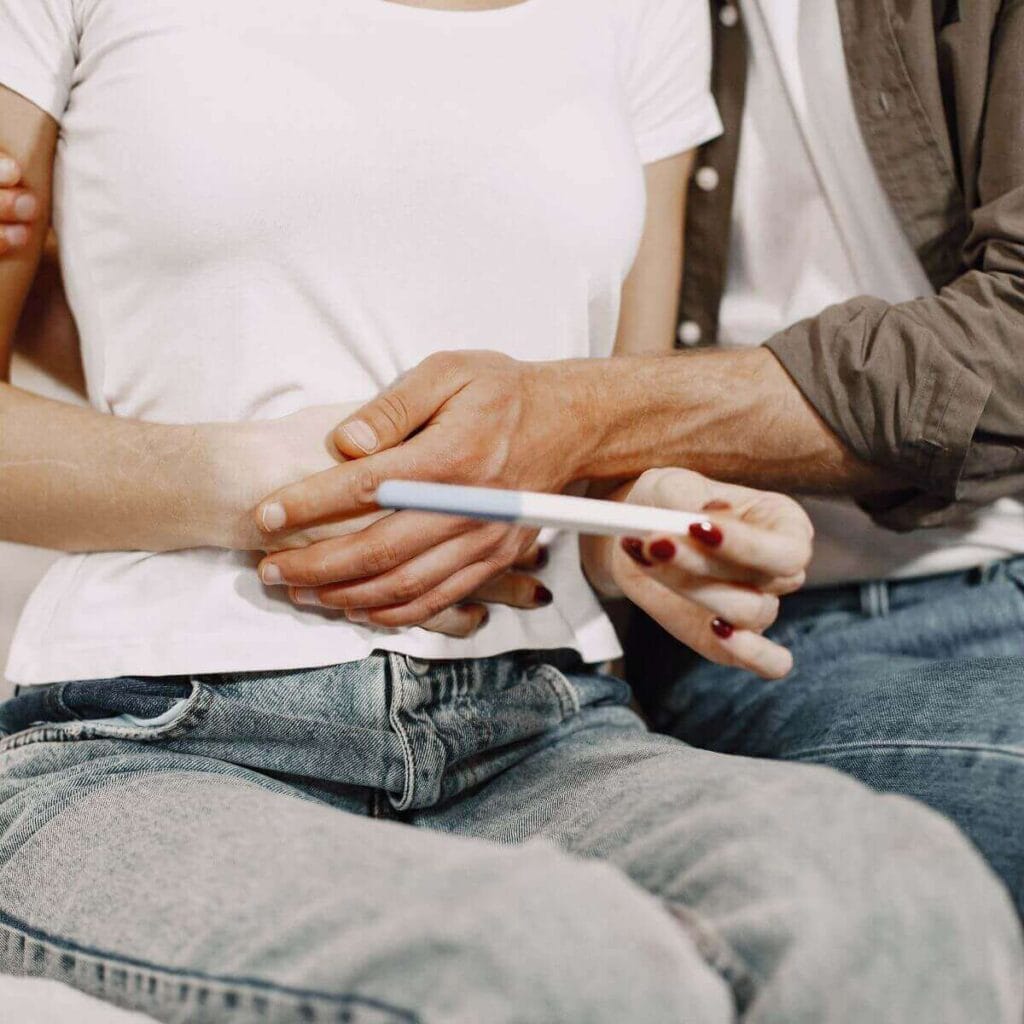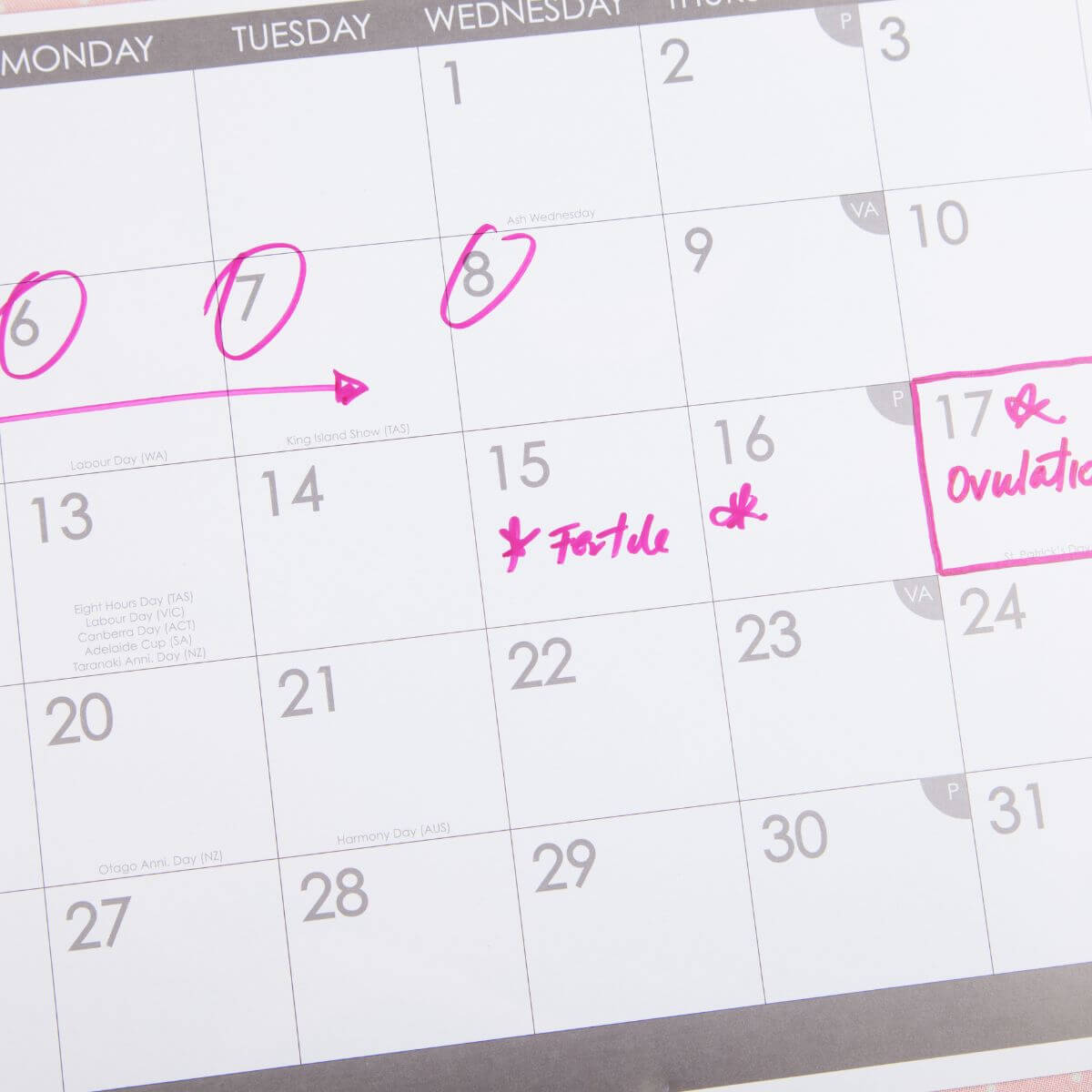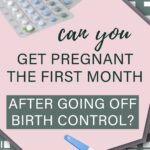You’ve reached that pivotal moment when you think you’re ready to grow a family, and now you’re probably wondering what your chances of getting pregnant the first month off the birth control pill. I know I did when we first started trying to conceive!
Perhaps you and your partner (or just you if you’re single!) have deeply considered whether or not you’re actually ready to have a baby, and maybe you’ve even started budgeting for baby (good work, that one is hard!).
If the outcome of these talks has been that you feel ready, congratulations! You’re about to begin your conception journey.
First things first, toss out your birth control pills, forego your Depo shot, or make an appointment to remove that pesky IUD.
Now how long should you expect to wait? Honestly, you’re probably wondering what your chances of getting pregnant during the first month off the birth control pill and other contraceptives are, and we don’t blame you!
Read on to learn everything you need to know about conceiving after birth control and how long it might take to get pregnant.
Please note that you should always talk to your doctor about stopping birth control before you begin your conception journey. The material in this article is in no way meant to replace your doctor’s expertise.

This site contains affiliate links, meaning that we earn a small commission for purchases made through our site. We only recommend products we personally use, love, or have thoroughly vetted.
When Should You Stop Taking Birth Control if You’re TTC?
Here’s the thing about pregnancy after birth control pills–there’s no magic number or rule about how long it will take you to conceive. Some people will get pregnant within a few weeks, while others might take several months.
What we do know, however, is that 83% of us will end up getting pregnant within a year of throwing out our birth control pills.
In an article from Lancaster General Health, experts say most menstrual cycles return to normal within one to three months after stopping hormonal birth control.
Can You Get Pregnant the First Month After Stopping The Birth Control Pill?
Can you get pregnant the first month after stopping birth control? It is possible!
But will you? That’s hard to say.
Let’s say you stop birth control today; what happens inside your body? Since the pill is a type of hormonal medication, you’ll first experience changes in your hormone levels.
These hormonal fluctuations will help you return to your “normal” period cycle.
Now, something to understand is that you might have a withdrawal bleed soon after discontinuing birth control pills. The sudden hormone drop causes this and is NOT your “normal” menstrual cycle.
Pregnancy can’t occur until you restart a regular period and ovulation cycle.
It can take a couple of months for this to happen. However, research shows that up to 40% of people in a 200-person study conceived during the first month off of birth control.
Again, though, each body is different. Unfortunately, there aren’t many guarantees when figuring out how long it will take you to conceive. Factors including overall health, weight, and age can affect how quickly you get pregnant.
Long story short: You can definitely get pregnant right after stopping birth control pills. Realistically, it might take a few months. This means that your chances of getting pregnant the first month off the birth control pill depend largely on your own body, ovulation, and how you handle coming off the pill.
Changes in Your Body After Stopping Birth Control
Many of us are used to fluctuations in our hormone levels, so it’s no surprise that getting off birth control methods can cause changes in our estrogen and progesterone levels.
Due to these fluctuations, it’s normal to experience a wide range of annoying symptoms. This period of fun is called “Post Birth Control Syndrome.” Effects include:
- Acne
- Mood Swings
- Headaches
- Irregular Periods
- Changes in Blood Flow During Period
- Cramps
Wondering when you’ll start feeling better? Experts say most people “even out” within a month or two of putting away their birth control.
Is It Safe to Conceive Right After Stopping?
Past research suggested that getting pregnant right after stopping birth control pills included a higher risk of miscarriage.
Recent research has disproved this theory. Studies show that getting pregnant shortly after stopping the pill will NOT increase your chances of pregnancy loss.

Does Long-Term Birth Control Usage Adversely Affect Fertility?
Did you know that most of us start using birth control around our sixteenth birthday? Since the average age of first-time moms is 26, there’s a good possibility you’ve spent around a decade doing everything you can to avoid having a baby. Honestly, same.
But what happens to us millennials who are now ready to stop trying to avoid it? It’s normal to wonder what happens in your body after that long-term birth control use and whether conceiving right away is possible.
If this train of thought feels familiar, don’t worry. There’s no evidence that hormonal birth control use causes infertility. Your chances of having a baby after long-term birth control use are likely as strong as they would be if you hadn’t been taking it.
Let me say it a little louder for the future mamas worrying in the back: taking birth control pills for extended periods will NOT cause infertility!
This is a common misconception that has no scientific grounding. Therefore, if you’re talking with gynecologists or obstetricians about getting on contraception, don’t let fertility fears get in the way of planning your family.
In fact, some experts even believe hormonal methods can improve fertility by balancing hormones and minimizing the side effects of conditions like endometriosis.
Do Other Forms of Birth Control Make it Harder to Conceive Quickly?
Again, remember that everyone’s body is different, so each of us responds to getting off birth control in various ways. That said, the possibility of pregnancy a couple of months after discontinuing use seems to be the standard.
Let’s break it down by birth control method:
1. Barrier Methods
If you’re using barrier protection such as condoms, diaphragms, or sponges, there’s no reason you can’t conceive the first time you get busy without them–if you’re ovulating, that is! If you’re worried about spermicide, don’t! It only takes 6-8 hours to leave your system.
2. Mini Pill
If you’re using a progestin-only pill, you might get pregnant within weeks after stopping. Since this birth control option doesn’t prevent ovulation (it just thins out your endometrial lining), it takes less time for your body to return to its regular sequence of events.
3. IUDs
In a study of 1300 people using either copper IUDs or hormonal IUDs, most conceived within 18 months of taking them out. That timeline is a worst-case scenario, though, as the mean number was 4.4 months to get pregnant.
4. Patches
Birth control patches seem to have a quick conception turnaround time. Experts claim that it is possible to get pregnant within a couple of weeks of removing them.
5. Depo-Provera Shots
Since the Depo-Provera shots are meant to provide longer-lasting results, you’ll likely have to wait a bit longer to conceive after stopping. However, it only takes an average of nine to ten months for a positive pregnancy test after your last shot.

What Should You Do if You’re Not Getting Pregnant?
So, your remaining birth control pills have long since gone away, but you still haven’t gotten the pregnancy test results you’re looking for. At what point does the waiting game become a problem?
If you’re having sex regularly, experiencing a normal period, and noticing signs of ovulation, give yourself at least a year to try and get pregnant if you’re under age 35.
It might be worth an appointment with your practitioner if it still has not happened after a year for under 35 hopeful mamas and 6 months for those of us over 35.
We’ve clarified your birth control won’t cause infertility, but that doesn’t mean that potential issues aren’t at play. Let’s say, for instance, you have polycystic ovary syndrome (PCOS). You can still experience challenges from PCOS infertility after you stop taking the pill.
Please don’t hesitate to contact your doctor if you’re worried about your fertility. They can do a fertility workup to provide the answers and peace of mind you deserve.
Are You Ready to Stop Birth Control Pills? Get Ready for the Possibility of Pregnancy!
Pregnancy after stopping birth control pills is a fickle thing. Sure, it could take several months to a year, but you could also get pregnant within just a couple of days or weeks. Your chances of getting pregnant the first month off the birth control pill are always best discussed with your doctor before you even start trying to get pregnant.
Ultimately, they can help you better understand your chances of getting pregnant the first month off the birth control pill by addressing specific factors like your overall health, fertility, and your age.
The moral of the story is this: If you don’t feel completely ready to have a baby, you should use protection for a little longer. Yes, most of us worry about the incessant ticking of our biological clocks, but thankfully, we live in a time where getting pregnant at an advanced maternal age (35 or older) is “easier” than ever.
Even if you experience infertility challenges after you stop taking birth control, many treatment options are available to help you grow a family.
Do you worry about your chances of getting pregnant the first month off birth control pills? Are you hoping it takes some time or praying for that positive result right away?










